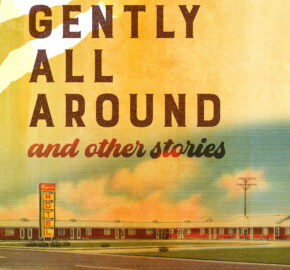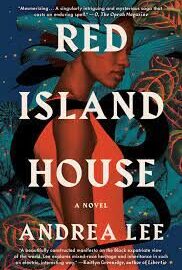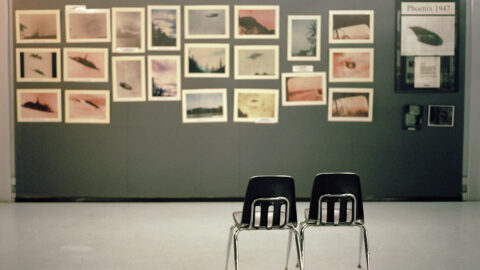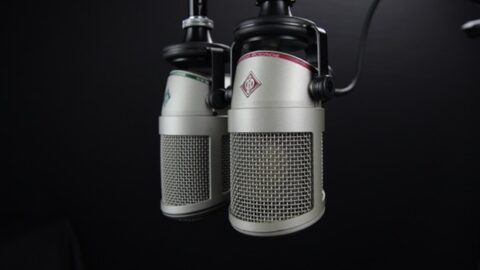Interviews • Andrea Lee
Naming Exile: an interview with Kaveh Bassiri
“Cryptopedia” – An Interview with Andrew Demcak
Andrew Demcak’s “Cryptopedia” is a collection that lives up to the mystery and intrigue promised by its title. “Cryptopedia” succeeds with that most fundamental and pleasing of poetic ideas: finding harmony between form and content. The 2017 Anzaldúa Poetry Prize finalist is a poet, a novelist, and, as he says, a “content creator in various forms.”
Demcak is a Renaissance man who works in unusual ways, cutting up blocks of text from a variety of sources and rearranging them, to create his poems. In “Cryptopedia” he mixes this method with the murky, monstrous and mysterious to create something unsettling yet genuinely moving and thought-provoking. Demcak’s success comes from his pitch-perfect subject choices and his ability to turn a seemingly random selection of lines and quotes into a twisting narrative, a short, emotive gut-punch. It takes talent to write poetry, but Demcak has proved he is not only a great talent, but a true craftsman.
Demcak’s poetry has appeared in a range of journals and we were lucky enough to have him share his craft, as well as some words of wisdom, with us at Newfound.
The Best Available Evidence: A Conversation with Rebecca Marino
Austin-based artist Rebecca Marino is no stranger to the strange. Her photography is often influenced by astronomy and the cosmos and her most recent series, “The Best Available Evidence,” explores the world of paranormal investigation.
The series was inspired by a book discovered in a used bookstore, which generated a personal photographic inquiry into the world of UFO documentation. Her work is as serious as it is playful, found in both the lightheartedness of subject matter and in the thoughtfulness of her photo compositions.
The Required Reading Interviews: Clara Burghelea
An Interview with George Spisak, Co-Founder of The Uprising Review
The Uprising Review is a literary magazine that celebrates freedom of speech and invites all perspectives and their unique voices. Founded just recently, the literary magazine is the brainchild of four minds: Everitt Foster, George Spisak, Stephen Willis, and W.O. Cassity.
An Interview with Richard Adin of “An American Editor”
I recently had the pleasure of speaking with Richard Adin, Founder and CEO of Freelance Editorial Services and of the “An American Editor” blog. What follows is our discussion of his journey to become an editor, his experience in the industry, and his advice on a number of topics.
“The Graffiti of Pompeii” – An Interview with Laura Sobbott Ross
Laura Sobbott Ross has been writing poetry since she was a teenager. Her writing has appeared in The Florida Review, Meridian, and many others. She was a finalist for the 2016 Newfound Anzaldúa Poetry Prize, as well as a finalist for the Pushcart Prize and the Arts & Letters Poetry Prize in 2016.
“Flower Wars” – An Interview with Nico Amador
Nico Amador’s “Flower Wars” is a collection that lives up to its oxymoronic title. It is grounded, it is alive and growing, but it is also full of tension, power and conviction. The 2016 Anzaldúa Poetry Prize winner is nothing less than the heartfelt work of a poet formed by the strength of his political beliefs and his desire to understand and express his place in the world as a queer, trans and mixed-race poet.
‘West Illegitimately’ – An Interview with Éireann Lorsung
Éireann Lorsung is a writer, teacher, and editor who received an MFA from the University of Minnesota and a PhD from the University of Nottingham before writing her first book Music for Landing Planes. She recently rec eived a National Endowment for the Arts (NEA) grant in Literature that will allow her to travel and gather research for upcoming projects. Lorsung resides in rural Belgium where she runs a residency center for artists and writers called Dickinson House. She’s also the creative designer of the micro press Miel and editor of Journal 1110.
eived a National Endowment for the Arts (NEA) grant in Literature that will allow her to travel and gather research for upcoming projects. Lorsung resides in rural Belgium where she runs a residency center for artists and writers called Dickinson House. She’s also the creative designer of the micro press Miel and editor of Journal 1110.
Rodney Gomez: 2014 Anzaldúa Poetry Prize Winner
Olivia Cronk: Junk Drawer Poet and Mood Thief
Olivia Cronk is one of two finalists for Newfound’s 2014 Gloria E. Anzaldúa Poetry Prize. Her sublime imagery, irreverence and precision of language struck the panelists and the judge. Coupled with her unique perspective on poetry, she is one to watch, if not to get to know. Look for her poetry in our print issue.
REGGIE CARLISE: Tell me about yourself.
OLIVIA CRONK: I live on the north side of Chicago, where I also teach writing at a small commuter university, Northeastern Illinois University. I teach both Introductory Compositio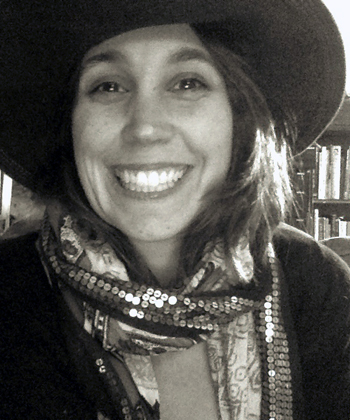 n and upper level Poetry Writing courses, so my artistic and professional selves are at once in competition with one another and deeply entangled.
n and upper level Poetry Writing courses, so my artistic and professional selves are at once in competition with one another and deeply entangled.
My first book, Skin Horse (Action Books, 2012), came out of the time of my early teaching life (adjunct work at sometimes three schools at once—this is likely a familiar routine to many Newfound readers) and those poems were an extreme examination of the domestic, often in the flavor of B Horror films, Vincent Price, Giallo, David Lynch, Clara Rockmore. I think those were very, very interior in part because I had such a hectic work life.
And now, my labor situation is a little smoother (or, rather: as smooth as might be expected in the fucked up economy of academic jobs), but I have a small child, and somehow I find myself writing only in long-form (it’s easier to simply “drop in” on a fresh page of an ongoing document)—I only want to work on manuscripts, not on discrete poems. My submission to Newfound’s chapbook contest is from a long poem, “Middle Mansion,” which is about genre, the Fantasy genre, fantasy, (the self inside of the place of) memory, fashion, early adulthood, and apocalyptic settings.


